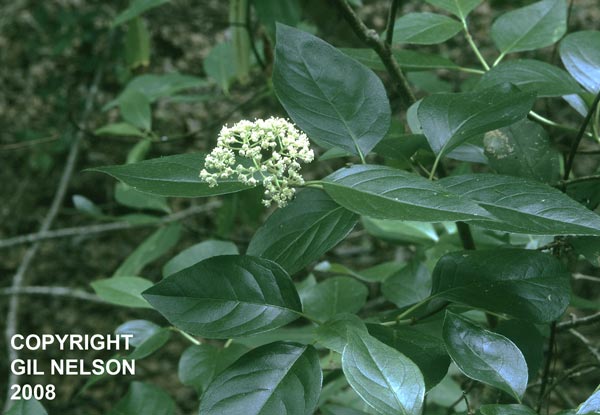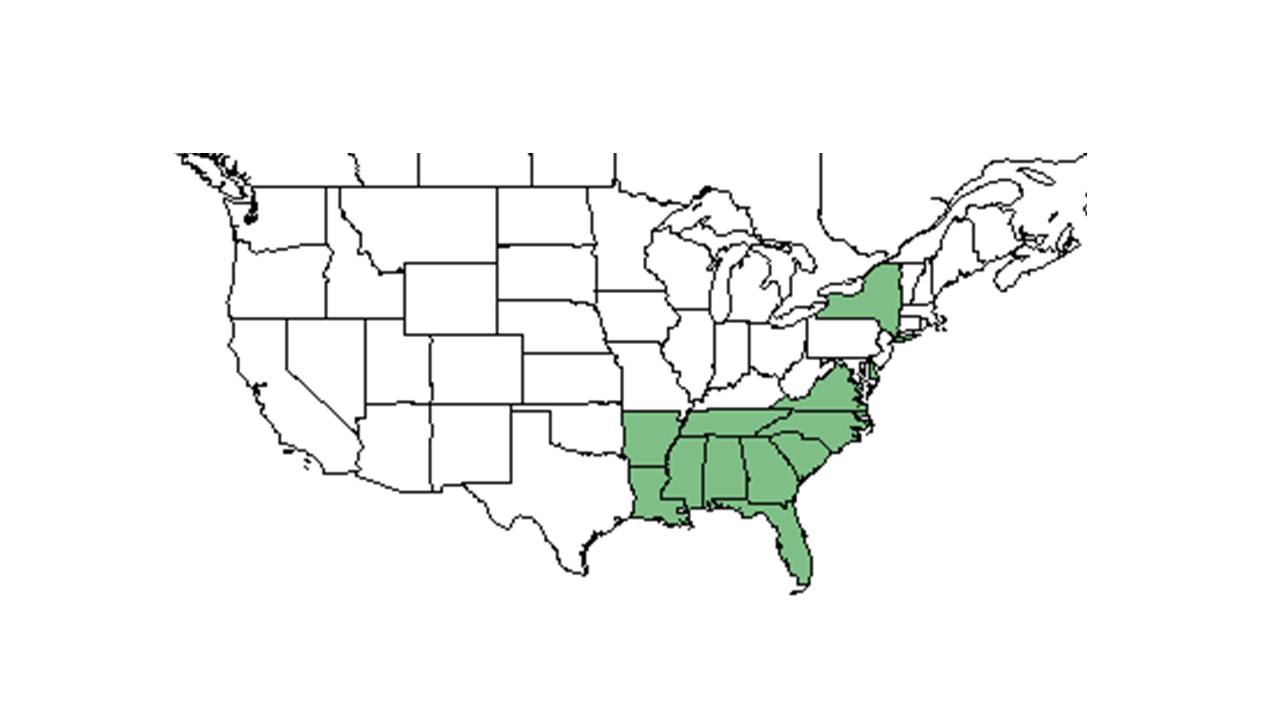Difference between revisions of "Decumaria barbara"
KatieMccoy (talk | contribs) |
|||
| Line 29: | Line 29: | ||
===Habitat=== <!--Natural communities, human disturbed habitats, topography, hydrology, soils, light, fire regime requirements for removal of competition, etc.--> | ===Habitat=== <!--Natural communities, human disturbed habitats, topography, hydrology, soils, light, fire regime requirements for removal of competition, etc.--> | ||
It is found in in swampy woods, along banks and streams, in floodplains, in mesic woodlands, slopes of ravines, and seen climbing on a tree trunk(FSU Herbarium). It requires low light levels (FSU Herbarium). It is associated with drying sandy loam soil types (FSU Herbarium). | It is found in in swampy woods, along banks and streams, in floodplains, in mesic woodlands, slopes of ravines, and seen climbing on a tree trunk(FSU Herbarium). It requires low light levels (FSU Herbarium). It is associated with drying sandy loam soil types (FSU Herbarium). | ||
| + | |||
| + | Associated species includes ''Acer, Carpinus, Fraxinus, Nyssa, Quercus, Taxodium'' (FSU Herbarium). | ||
===Phenology=== <!--Timing off flowering, fruiting, seed dispersal, and environmental triggers. Cite PanFlora website if appropriate: http://www.gilnelson.com/PanFlora/ --> | ===Phenology=== <!--Timing off flowering, fruiting, seed dispersal, and environmental triggers. Cite PanFlora website if appropriate: http://www.gilnelson.com/PanFlora/ --> | ||
Revision as of 21:49, 21 October 2015
| Decumaria barbara | |
|---|---|

| |
| Photo taken by Gil Nelson | |
| Scientific classification | |
| Kingdom: | Plantae |
| Division: | Magnoliophyta - Flowering plants |
| Class: | Magnoliopsida – Dicotyledons |
| Order: | Rosales |
| Family: | Hydrangeaceae |
| Genus: | Decumaria |
| Species: | D. barbara |
| Binomial name | |
| Decumaria barbara L. | |

| |
| Natural range of Decumaria barbara from USDA NRCS Plants Database. | |
Common name: woodvamp
Contents
Taxonomic notes
Description
It has a vining and climbing habit (FSU Herbarium).
Distribution
Ecology
Habitat
It is found in in swampy woods, along banks and streams, in floodplains, in mesic woodlands, slopes of ravines, and seen climbing on a tree trunk(FSU Herbarium). It requires low light levels (FSU Herbarium). It is associated with drying sandy loam soil types (FSU Herbarium).
Associated species includes Acer, Carpinus, Fraxinus, Nyssa, Quercus, Taxodium (FSU Herbarium).
Phenology
It has been observed flowering in April and May and seen fruiting in May (FSU Herbarium).
Seed dispersal
Seed bank and germination
Fire ecology
Pollination
Use by animals
Diseases and parasites
Conservation and Management
Cultivation and restoration
Photo Gallery
References and notes
Florida State University Robert K. Godfrey Herbarium database. URL: http://herbarium.bio.fsu.edu. Last accessed: June 2014. Collectors: Loran C. Anderson, Rodie White, Robert K. Godfrey, Travis MacClendon, Karen MacClendon, and Kathy Willis. States and Counties: Florida: Calhoun, Gadsden, Jackson, Liberty, and Wakulla. Georgia: Grady.